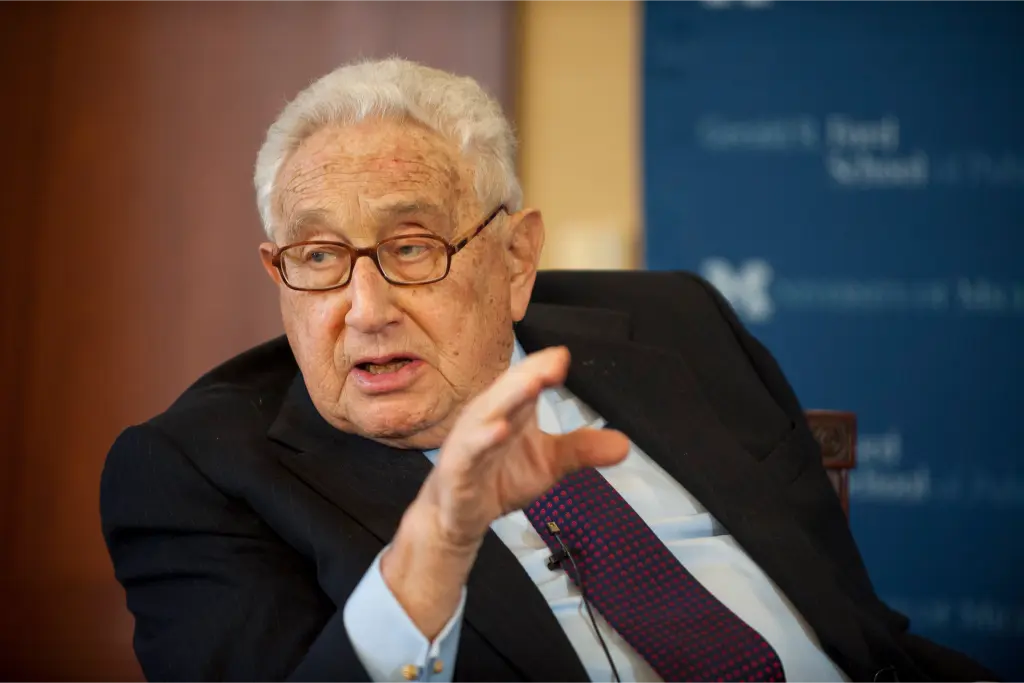Henry Kissinger, who passed away on November 29, 2023, at 100, was a towering figure in U.S. foreign policy, notably during his service under Presidents Richard Nixon and Gerald Ford. His influence extended well beyond his tenure, impacting American politics for decades, with many seeking his counsel.
Kissinger’s role in shaping policy during the 1970s had significant and lasting impacts globally, particularly in South America, the Middle East, and Southeast Asia. His policies during the Vietnam War profoundly affected Cambodia.
Once known as an “Island of Peace” under Prince Norodom Sihanouk, Cambodia was drawn into the Vietnam War due to its geographic position. Kissinger orchestrated “Operation Menu,” a secret bombing campaign against North Vietnamese supply lines in Cambodia, which led to widespread devastation and is considered illegal by many international law experts. This intervention contributed to the destabilization of Cambodia, creating a political vacuum and indirectly aiding the rise of the Khmer Rouge.
The Khmer Rouge, supported initially by ousted Prince Sihanouk, capitalized on the chaos and resentment against foreign aggression. Their rise to power in 1975 led to a genocidal campaign, resulting in the deaths of an estimated 1.6 to 3 million Cambodians. Kissinger’s policies are seen as a contributing factor to this tragedy.
Kissinger, born in 1923 in Weimar Germany to a Jewish family, fled to New York City in 1938 to escape Nazi persecution. During World War II, he was drafted into the US Army, serving against Germany and earning a Bronze Star, retiring as a sergeant.
Prior to his government career, Kissinger was a tenured Harvard professor, where he developed his influential “realist” vision of foreign affairs. This perspective emphasized the need for great statesmen to build a global order to prevent war, recognizing the competition among great powers in an anarchic international system.
In 1969, Kissinger joined Nixon’s administration as national security adviser, becoming secretary of state in 1973 while maintaining his previous role. He continued as secretary of state under Ford’s presidency until 1977, with Brent Scowcroft succeeding him as national security adviser in 1975. Kissinger’s tenure was marked by support for US-friendly dictatorships, despite their involvement in civilian atrocities.
Kissinger was known for promoting “détente” with the Soviet Union, easing tensions through arms control negotiations. He played a pivotal role in the US-China rapprochement, culminating in Nixon’s historic 1972 visit to China. However, his tenure also saw an expansion of US bombings in Vietnam, Cambodia, and Laos, with a significant death toll. He was involved in sabotaging early peace talks but eventually concluded them in 1973, controversially receiving the Nobel Peace Prize despite the failure to end the war effectively.
After public service, Kissinger briefly returned to academia and then founded Kissinger Associates, a consulting firm leveraging his political connections globally.
In 1971, Kissinger played a key role in the U.S.’s decision to support West Pakistan in its campaign against East Pakistan (now Bangladesh), resulting in hundreds of thousands of deaths. Kissinger aimed to strengthen a regime that was strategically positioned for engaging China, as Pakistan was friendly to the U.S. and had good relations with Maoist China, making it a vital intermediary in Kissinger’s plan to realign China against the Soviet Union.
When Bengali leader Sheikh Mujibur Rahman won elections advocating East Pakistan’s autonomy, Pakistan’s military ruler Gen. Yahya Khan initiated a brutal crackdown, including a genocide against Bengali Hindus. Kissinger, despite being aware of these atrocities, supported Yahya and helped transfer arms to Pakistan. Throughout the conflict, Kissinger discouraged any action against Pakistan. Estimates suggest that 269,000 people died violently in the war, with millions of refugees and widespread rape as part of an organized campaign of terror.
Kissinger and Nixon were fully aware of the situation. Despite international pressure, they chose not to act against Pakistan, a stance that was later justified as necessary for America’s opening to China, though Kissinger himself didn’t solely attribute the support for Pakistan to the China strategy.
In 1975, as Ford’s national security adviser and secretary of state, Kissinger explicitly endorsed Indonesia’s invasion of East Timor, resulting in the deaths of at least 100,000 civilians. This invasion began after East Timor declared independence following Portugal’s regime collapse. The U.S., having previously supported Indonesian dictator Suharto, backed the invasion to stabilize the region and support a loyal ally. The Indonesian military used mostly U.S.-supplied weapons for the invasion, with estimates suggesting a death toll ranging from 100,000 to 230,000, a significant portion of East Timor’s population.
Experts have suggested that the U.S. had considerable influence over Suharto and could have prevented the invasion,
but the Ford Administration chose not to exert any pressure on Indonesia. This lack of intervention highlighted the U.S.’s prioritization of strategic alliances over humanitarian concerns.
It is true that Nixon’s legacy is cemented as a statesman, but he leaves behind an equal legacy of death and destruction.
